In a report released by Pike Research, 75% of Americans surveyed said they are interested in Property Assessed Clean Energy (PACE) financing programs. PACE is a financing arrangement run by a municipality where energy retrofits are paid through an annual special tax on the homeowner’s property tax bill, typically repaid over 15 or 20 years. 63% of those polled were most interested in using this type of financing for solar panels or tankless water heaters.
What is unique about PACE is that it allows energy retrofits to be attached to the home, not the borrower. Many homeowners don’t want to make the commitment for solar or towards energy efficiency because they aren’t sure how long they will be in their home. If for some reason, the homeowner has to move before he recovers the project cost, the liability (and benefits) will be passed on to the future owners. In addition, these improvements usually require a large cash outlay upfront. PACE gives a lot of flexibility by spreading that cost.
The earliest PACE program was introduced in Berkeley, California and was called the “Berkeley FIRST” program. Berkeley completed the pilot program in November 2009, approving and completing thirteen solar installation projects. The program achieved great recognition. In just two years, twenty-four states have passed legislation that would allow municipalities to create PACE programs, including California, Colorado, Florida, Georgia, Illinois, Louisiana, Maine, Maryland, Massachusetts, Michigan, Minnesota, Montana, Nevada, New Hampshire, New Mexico, New York, North Carolina, Ohio, Oklahoma, Oregon, Texas, Virginia, Vermont, Wisconsin. The program even garnered the Vice President’s attention. Joe Biden pitched to make Berkeley FIRST available nationwide and funded through the Recovery Act. This, however, was never sent to Congress or signed in to law. First, PACE will have to deal with other adversaries, Fannie Mae and Freddie Mac, and their regulator, the Federal Housing Finance Agency (FHFA).
On July 6th 2010, Fannie and Freddie issued lender guidance letters that said PACE was incompatible with their mortgages. Until further clarification is made, all PACE programs have come to a halt around the country. Fannie Mae and Freddie Mac are resisting PACE programs because they are concerned about its implication on customers’ existing mortgages. The debt from PACE would be considered senior to existing debt. This means that if a homeowner defaults on their loans, they would first take care of their annual PACE obligation before they pay any of their mortgage. Property tax assessments have always been deemed senior to home mortgages, but this was before homeowners could use assessments for energy improvements.
This has ignited a fury from government officials and the general public alike. The argument is that energy improvements have a short payback period and will be cash positive immediately – utility savings should outweigh increases to property assessments. If anything, proponents of PACE believe that homeowners who opt for these retrofits should be even better positioned to pay their mortgage. In my opinion, PACE is one of the most viable ways to increase adoption of renewable energy and energy retrofits by allowing these improvements to be more accessible by the middle class.
Brightstar Solar is a licensed solar installer in Massachusetts and Connecticut. We keep abreast of developments in solar financing and incentives and will work with our customers to navigate the installation process, maximize their return, and manage the rebate and permitting paperwork involved. If you have a home or business in Massachusetts or Connecticut and are interested in solar power, please contact us for a free evaluation.


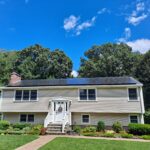

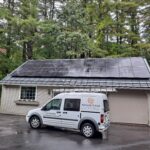
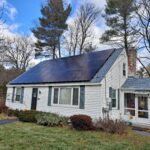
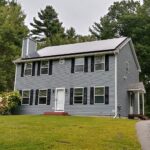
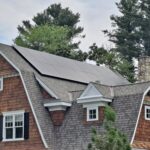
Pingback: PowerSaver Loan Offers New Way to Finance Solar Energy — BRIGHTSTAR SOLAR